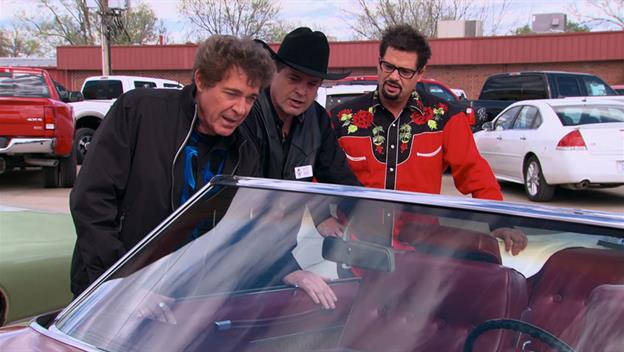Low Fuel Prices, Strong New-Car Sales Boost US Economy
What happens when $2.99 for a gallon of regular fuels demand for new vehicles? The U.S. economy feels its VTEC kick in, of course.
According to The Detroit News, the U.S. Commerce Department reported the economy grew 3.5 percent in Q3 2014, with 0.59 percentage points contributed by auto sales. Said sales also delivered an 0.55 percent boost in Q2 2014, helping the GDP climb to 4.6 percent.
Spending is up, as well: 9.5 percent increase in automotive spending through September 30, resulting in a SAAR of $457.1 billion.
Meanwhile, October’s sales are expected to rise 6.4 percent in comparison to the same time last year, with more to come according to Edmunds analyst Jessica Caldwell:
Car and truck sales have settled into a groove. Dealers are welcoming a consistent flow of shoppers into their showrooms, and the pace will likely remain steady through the end of the year. With declining gas prices and strong truck and SUV sales, the industry is poised for a very busy holiday season.
Forecasters are predicting 2014 sales will hit 16.4 million units, the best performance since 2006, with LMC Automotive projecting 17 million sold by 2018, 17.5 million by 2020. The figure would just best the previous high of 17.4 million SAAR, achieved in 2000.
Seattle-based writer, blogger, and photographer for many a publication. Born in Louisville. Raised in Kansas. Where I lay my head is home.
More by Cameron Aubernon


































Comments
Join the conversation
Unless you happen to know a couple million people the percentage of fuel you and your acquaintances use is a fraction of a percent of real world usage. Ethanol and it's associated downfalls are a very real problem that are recognized by all OEM's . All 2007 and later vehicles are required to contain ethanol compatable rubber fuel lines and metal. Carburetors are especially susceptible because they are primarily made up of soft alloys like aluminum. Ethanol in itself is corrosive to such metals and the alcohol will dry and harden rubber fuel lines not designed for ethanol use. Some off the shelf additives further compound the problem rather than help because the alcohols in them will cause further phase seperation. The only type of additive that should be used when storing ethanol blended gas is something with corrosion inhibitors. The hygroscopic properties of ethanol literally absorb the moisture from the air, especially if left in a partially empty fuel tank. Humid climates compound the issue more so than dry climates. I've rebuilt dozens of carburetors over the years and have never seen corroded jets and fuel bowls and hardened diaphrams like I have seen since ethanol fuel was introduced. Everybody is entitled to their own opinion but I've seen enough to stay away from the stuff if at all possible. I definitely will not store anything with it in there. All my carburated engines get ran dry before storage and the fuel drained from the tank and my Mustang will get a tank full of ethanol free fuel and a bottle of corrosion inhibitor/fuel lubricant, like sea foam or Schaeffers, which are blended petroleum products and alcohol free.
Sure - everybody's printing money... except Volkswagen. Such news has to be killing them, but they're too proud to understand what to do about it.
If VW built the same cars over here as they do in Europe, not many would buy them due to the price. Very few gasoline powered VW's overseas. And the diesel engines fair much better because Europe has higher fuel standards and less emissions junk hanging off the engines. What people don't realize is Volkswagen Group sells passenger cars under the Audi, Bentley, Bugatti, Lamborghini, and Porsche names so they have access to some of the best technology in the world. What you see here in America is the fault of the consumers. We demand cheap over quality and that's what we get. 2014 VW Jetta entry MSRP - $15,690 2014 Toyota Camry entry MSRP - $22,970 Hmm, sounds like another apples to oranges comparison to me.
$80 oil is the current move by the Saudis. While it has all sorts of implications for others, the Saudi's main motivation is to measure its effect on fracking projects in the Williston and Permian Basins. God forbid, from their point of view, that fracking should spread to California, Alberta, Colorado, or Coober Pedy, much less Poland or China. Of course, given time, it will. The only real question is how soon. My educated guess is that $80 will prove to be not nearly low enough, even in the short-term. Boom time costs prevail in North Dakota and Midland - $15-20 per hour to work at fast food joints, for example. When all this comes back to earth, $80 will not be at all low enough to severely slow, much less stop future fracking projects. In olden days we referred to this rather dramatic cost deflation as the difference between 'day rates' and 'footage rates'. Typically, it amounted to about 25% and always happened rather suddenly. The oil boom is over Rover. Get used to it.